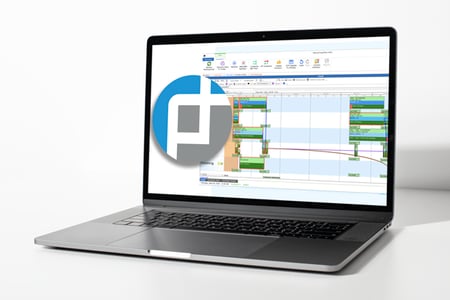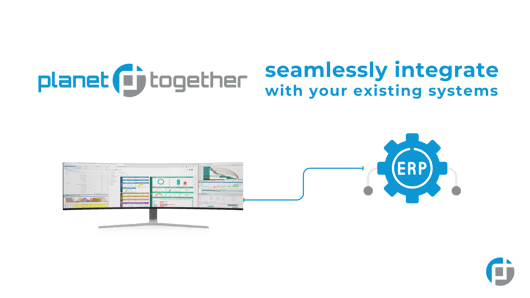
Sustaining Complex Supply Chains in Medical Manufacturing: Strategies for Resilient Planning with APS Integration
In medical manufacturing, the supply chain isn’t just a support function—it’s a lifeline. From life-saving devices to critical pharmaceuticals, every product must traverse a complex network of suppliers, regulatory checkpoints, production facilities, and logistics partners. For Production Planners in this sector, the challenge lies not just in managing this complexity but in sustaining it with reliability, agility, and compliance.
As demand variability, regulatory scrutiny, and global disruptions grow, sustaining a complex supply chain demands advanced tools and strategic foresight. This is where advanced planning and scheduling (APS) systems like PlanetTogether, when integrated with leading enterprise platforms such as SAP, Oracle, Microsoft Dynamics, Kinaxis, or Aveva, become indispensable.
This blog explores how Production Planners in medical manufacturing can navigate and sustain complex supply chains using integrated APS solutions—turning unpredictability into competitive advantage.
The Unique Challenges of Medical Manufacturing Supply Chains
Medical manufacturing presents a supply chain puzzle of heightened complexity and stakes:
Regulatory Demands: Stringent compliance with FDA, ISO, and other regulatory bodies requires full traceability and documentation across the supply chain.
High Mix, Low Volume: Many medical products are produced in small batches with a high product variation, making forecasting and scheduling more difficult.
Critical Component Dependencies: Even minor component delays can stall entire production lines due to the specialized nature of medical devices and supplies.
Global Sourcing Risk: Reliance on international suppliers increases exposure to geopolitical, pandemic, and logistical disruptions.
Ever-Changing Demand: Demand surges (as seen during COVID-19) must be rapidly accommodated without compromising quality or compliance.
To maintain control and sustainability amidst this complexity, Production Planners must employ digital tools that provide both visibility and adaptability.

Why Traditional ERP Is Not Enough
While Enterprise Resource Planning (ERP) systems such as SAP, Oracle, or Microsoft Dynamics are foundational to operations, they often fall short in addressing the dynamic nature of planning and scheduling in medical manufacturing. ERPs are typically transactional and focused on execution—they know what happened, but they don’t always support agile, forward-looking decisions.
This is where PlanetTogether APS steps in, offering advanced capabilities such as:
Finite Capacity Scheduling
Real-Time Scenario Simulation
Optimization Algorithms
Material Synchronization
Bottleneck Analysis
When integrated with your existing ERP system, PlanetTogether enhances your supply chain's agility and resilience.

The Power of Integration: PlanetTogether + ERP Systems
By integrating PlanetTogether with ERP platforms like SAP, Oracle, Microsoft, Kinaxis, or Aveva, medical manufacturers gain a unified, real-time planning environment that bridges data silos and empowers strategic decision-making.
Here’s how this integration supports sustaining complex supply chains:
Unified Data for Holistic Visibility
With integration, all key supply chain data—inventory levels, demand forecasts, production schedules, supplier performance—are synchronized in real-time. This gives Production Planners a 360-degree view of the supply network and enables quicker responses to disruptions.
Scenario Planning and Risk Management
PlanetTogether allows planners to run multiple "what-if" scenarios. For instance, what if a critical supplier from Asia halts deliveries due to a geopolitical issue? Planners can model the impact on production and evaluate mitigation strategies, all within minutes.
Agile Capacity Management
When integrated with Microsoft Dynamics or SAP, PlanetTogether enables dynamic scheduling that accounts for actual machine and labor capacity. This allows teams to reassign tasks or reroute production without manual recalculations—an essential feature in high-variability environments like medical device assembly.
Material Synchronization with Production
Medical products often require strict material conformity and expiry tracking. Integration ensures that material availability is always aligned with production plans, reducing wastage and avoiding compliance violations.
Automated Compliance Tracking
Through integration with Aveva’s MES or Oracle’s compliance modules, production logs and documentation are automatically updated. This significantly eases the burden of audit readiness and ensures traceability is maintained without manual intervention.
Key Strategies for Sustaining Complex Supply Chains
To build on the advantages of APS-ERP integration, Production Planners should adopt the following best practices:
Build Redundancy into the Supply Network
Use scenario planning tools to identify critical dependencies and model the benefits of dual sourcing, regionalization, or supplier inventory buffers.
Enable Collaborative Planning
Leverage integrated systems to collaborate with suppliers and contract manufacturers in real time. Systems like Kinaxis enhance supply chain orchestration by sharing forecasts and production schedules downstream.
Adopt a Continuous Improvement Mindset
Use KPIs and dashboards from PlanetTogether to identify inefficiencies—whether it’s frequent rework, machine downtimes, or order changeovers—and apply lean principles for continuous improvement.
Digitally Map Supply Chain Risks
Create a digital twin of your supply chain using integrated data. This virtual model helps predict risk propagation and enables proactive adjustments to planning.
Train Cross-Functional Teams on Integrated Tools
The benefits of integration are maximized when planners, procurement, and operations teams understand how to interpret and act on system insights. Cross-training enhances collaboration and speeds decision-making.
Sustaining complex supply chains in medical manufacturing requires more than operational discipline—it demands integrated intelligence. For Production Planners navigating these high-stakes environments, the combination of PlanetTogether APS and leading ERP platforms like SAP, Oracle, Microsoft, Kinaxis, or Aveva provides a powerful foundation for strategic, compliant, and agile planning.
By embracing integration, scenario simulation, and real-time optimization, planners not only ensure continuity in the face of disruption but elevate their role from operational executors to strategic orchestrators.
Now is the time to move beyond reactive scheduling—toward a proactive, resilient supply chain that sustains performance, ensures compliance, and saves lives.
Are you ready to take your manufacturing operations to the next level? Contact us today to learn more about how PlanetTogether can help you achieve your goals and drive success in your industry.























LEAVE A COMMENT